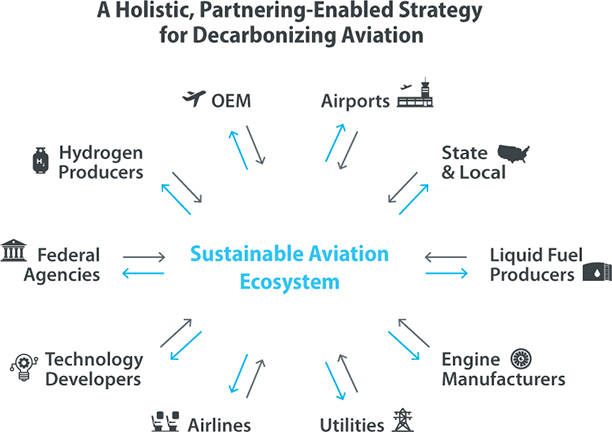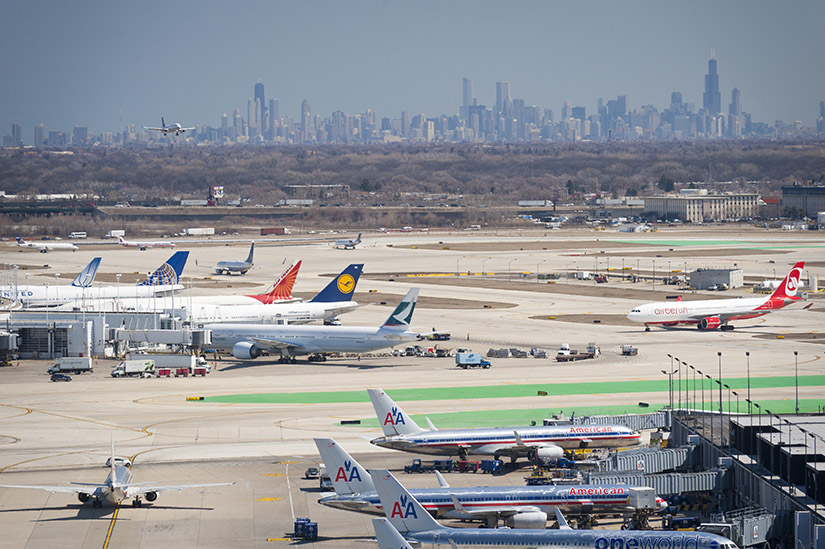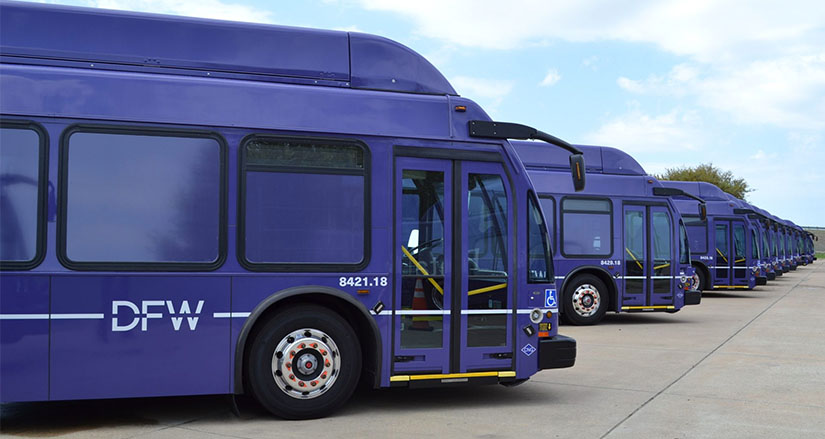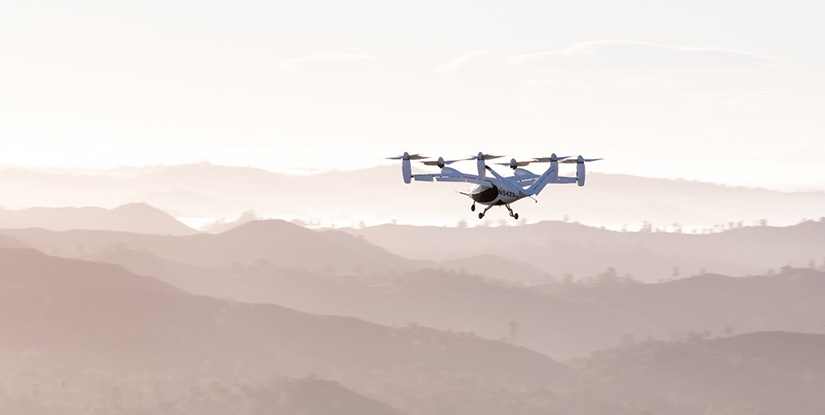5 NREL Partnerships Transforming Energy in Aviation
Join NREL in Celebrating National Aviation Day 2023

Happy National Aviation Day! August 19 marks the birthday of Orville Wright, an American inventor credited for flying the world’s first successful motor-operated airplane in 1903.

The sustainable aviation ecosystem is made up of partnerships between industry, federal agencies, technology developers, and more. Figure by Nichole Leon, NREL
The aviation industry has seen countless advancements in the 120 years since Wright’s famous 12-second flight. Join the National Renewable Energy Laboratory (NREL) in celebrating the partnerships working to bring sustainability to the skies—past, present, and future.
“Our partnerships across the sustainable aviation ecosystem are an essential piece of NREL’s strategy to provide solutions that can achieve deep decarbonization,” said Brett Oakleaf, strategic partnership manager leading the laboratory’s sustainable aviation collaborations.
NREL is just getting started. “There is so much more we can do,” Oakleaf emphasized. “We need to hear from new stakeholders, collaborate with industry leaders, and work across federal agencies to address and coordinate on the challenges ahead.”
Interested in partnering with NREL to shape the future of sustainable aviation?
Contact NREL’s Strategic Partnership manager leading NREL’s aviation collaborations:
Brett Oakleaf
Here are a few highlights from NREL’s partnerships across the sustainable aviation ecosystem.
U.S. Department of Energy Bioenergy Technologies Office (BETO)
Clearing the Runway for Sustainable Aviation Fuels
NREL researchers performed a regional analysis of Chicago O’Hare International Airport (ORD) to determine that sustainable aviation fuel (SAF) could be viable and environmentally friendly choice for the global transportation hub. The study, funded by BETO, examined variables including regional feedstock availability, infrastructure compatibility, policies, cost of SAF production, and other important factors. The analysis can be adapted to other regions to help airports across the country develop their own tailored strategies for incorporating SAF.
In addition, researchers from NREL, University of Puerto Rico, North Carolina State University, and Fearless Fund have an idea to turn seaweed and wood waste into sustainable aviation fuel and graphite, a material used in electric vehicle batteries. BETO is funding the partnership, which aims to adapt biological conversion and graphitization technologies to harness an estimated 1.24 million dry tons of sargassum that can be collected from populated coastlines annually. Blended at 25% with wood waste, that supply chain could yield up to 78 million gallons of sustainable aviation fuel and 61,000 tons of graphite every year.

An NREL study examines the regional variables associated with deploying sustainable aviation fuel at Chicago O’Hare International Airport, pictured above. Photo from Chicago O’Hare International Airport
Colorado Division of Aeronautics
Developing a Flight Plan for Sustainable Aviation Technologies
The Colorado Division of Aeronautics is partnering with NREL to study future opportunities and potential challenges posed by the introduction of alternatively powered aircraft in Colorado. The study can help Colorado effectively leverage the benefits of the latest advancements in aviation technology. Results will inform planning efforts for necessary investments in Colorado’s airport infrastructure, increased utility demand, policy and regulatory considerations, and future funding implications.
Dallas Fort Worth International Airport (DFW)
Booking a One-Way Flight to the Future of Sustainable Airports
NREL researchers recently developed a simulation-based optimization modeling framework to help DFW transportation operators design effective electric bus deployment strategies. The advanced computing-based model analyzed real-world conditions and simulated the existing DFW system to determine optimal battery capacity, charging power, and number of charging stations while minimizing capital cost and emissions.
Another NREL analysis considered how to tie sustainability into how people move through airports—from going through security to accessing different terminals. One strategy for improving DFW’s energy savings uses digital wayfinding technologies to help travelers and employees move through the nation’s second-busiest airport more efficiently and equitably. Researchers continue to help DFW with its energy efficiency goals through local and Department of Energy-funded efforts to optimize buildings and plan for changing vehicle demographics at airports, including rental car fleets.

A new modeling framework may help Dallas Fort Worth International Airport—and others in the future—design electric bus deployment strategies. Photo from DFW Airport
Federal Aviation Administration (FAA)
Securing Sustainable Aviation Technology in Cyberspace
To help protect infrastructure as airports embrace electrification, NREL researchers partnered with the FAA to review the cybersecurity needs of electric aviation. The review evaluates how stakeholders like airlines, utilities, equipment suppliers, and regulators can implement a cybersecurity approach. It also identifies common methods to secure infrastructure early in the design and procurement process.
Department of Defense AFWERX
Preparing Electrified Aircraft for Takeoff
A partnership between NREL and the Air Force’s AFWERX division aims to help develop electric vertical takeoff and landing (eVTOL) technologies. The partnership is centered on developing electric and hybrid electric aircraft technologies that can assist Air Force missions and operations, including common needs like moving supplies or transporting people hundreds of miles. NREL provides its sustainable aviation expertise and experience studying the techno-economic, environmental, and security aspects of new technologies to support and validate project concepts and develop analysis tools.

NREL is supporting the U.S. Air Force’s Agility Prime project, which engages the rising eVTOL industry in the United States. Photo from Joby Aviation
Learn more about NREL's sustainable aviation and sustainable transportation and mobility research. NREL offers support in modeling for sustainable aviation fuels, energy generation, electrified aviation, and more. And sign up for NREL's quarterly transportation and mobility research newsletter, Sustainable Mobility Matters, to stay current on the latest news.
Last Updated May 28, 2025
